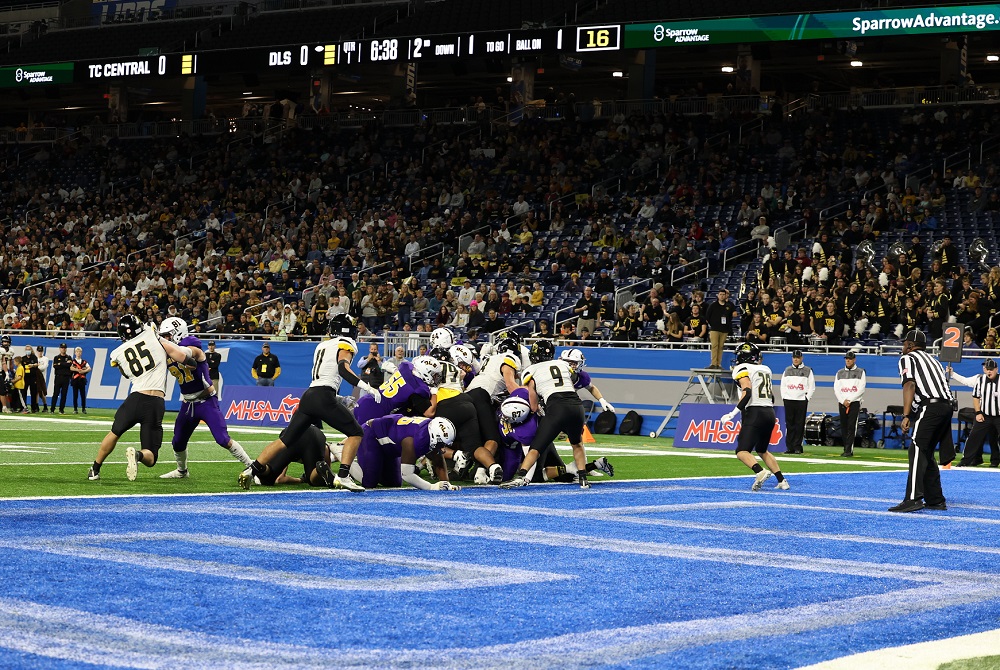
Be the Referee: 7-Person Football Crews
November 8, 2018
This week, MHSAA assistant director Brent Rice explains why seven-person crews are used at the Semifinals and Finals rounds of the 11-Player Football Playoffs.
Be The Referee is a series of short messages designed to help educate people on the rules of different sports, to help them better understand the art of officiating, and to recruit officials.
Below is this week's segment – 7-Person Football Crews - Listen
Since 2015, the MHSAA has used seven-person football officiating crews at the Semifinal and Final levels of our 11-player tournament. These larger crews replaced the traditional five-person crews in the 24 most important games of the football season.
Seven-person crews, which for many years were the size of NCAA and NFL crews, provide for much better coverage in the passing and running games with all of the spread offenses and wide-open attacks that have become commonplace in recent years in high school football.
By adding the two extra officials on each deep sideline, coaches have now two officials to communicate with on each sideline to answer questions and address concerns.
Past editions
November 1: Overtime Differences - Listen
October 25: Trickery & Communication - Listen
October 18: Punts & Missed Field Goals - Listen
October 11: What Officials Don't Do - Listen
October 4: Always 1st-and-Goal - Listen
September 27: Unique Kickoff Option - Listen
September 20: Uncatchable Pass - Listen
September 13: Soccer Rules Change - Listen
September 6: You Make the Call: Face Guarding - Listen
August 30: 40-Second Play Clock - Listen
August 23: Football Rules Changes - Listen

Be The Referee: Play Clock
By
Sam Davis
MHSAA Director of Officials
August 30, 2022
Be The Referee is a series of short messages designed to help educate people on the rules of different sports, to help them better understand the art of officiating, and to recruit officials.
Below is this week's segment – Play Clock - Listen
There’s a new rule in football this year that provides the offense more time to draw up a play and prepare matchups when the defense commits a foul.
In the past, if the defense committed a foul, the play clock would be set to 25 seconds, potentially changing the approach by the offense entirely.
Under the change, when the defense or receiving team commits a foul, the play clock will start at 40 seconds, giving the offense an extra 15 seconds to prepare their scheme for the next play.
For all other administrative stoppages, including fouls against the offense or kicking team, the play clock will be set to 25 seconds when play resumes.
Previous Editions:
Aug. 23: Intentional Grounding Change - Listen

